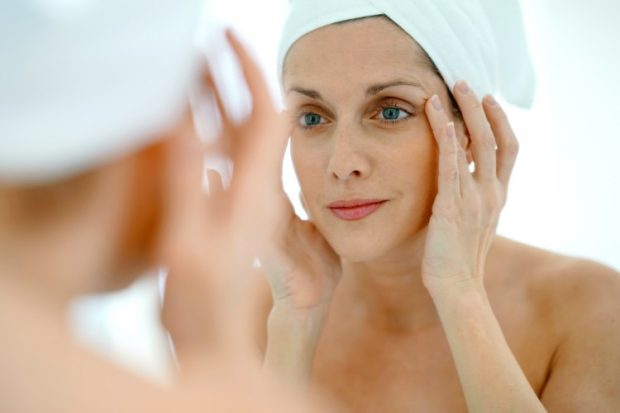Skincare trends are constantly evolving, with new discoveries being made ever so frequently. Growing in popularity, peptides are now more than a distant memory from science class or a mere buzzword, but something you should definitely be incorporating into your life.
What Are Peptides?
According to the National Human Genome Research Institute, peptides are amino acids that make up certain proteins needed by the skin. When several peptides bind together, they form polypeptides, which naturally occur in the skin. These peptides play a big role in the skin’s natural production of collagen. Made up of three polypeptide chains, these peptides stimulate collagen production.
The collagen molecule is too large to be absorbed through the skin. Hence why people opt for drinking bone broth or taking collagen supplements to increase their collagen intake. This is where peptides come in. The body easily absorbs and is able to use peptides. Incorporating peptides into your skincare routine can yield many benefits, especially for anti-aging.
How Do They Work?
Peptides are considered to be one of the most promising anti-aging treatments due to their ability to penetrate the top layer of the skin, sending signals to cells to produce more collagen. The easy absorption occurs because “many peptides are small enough to penetrate the skin,” says Blair Murphy-Rose, MD, a dermatologist at the Laser & Skin Surgery Center of New York and clinical instructor of dermatology at Weill Cornell Medical College. The result of using these peptides is firmer, smoother, and youthful-looking skin.
How Do Peptides Help With Anti-Aging?
From skin elasticity to reduced redness and irritation, peptides yield multiple anti-aging benefits, including:
- Creating an improved skin barrier: The skin barrier is the body’s line of defense against bacteria, ultraviolet rays, and other toxins. It works to lock moisture in and keep bacteria out. This barrier can be damaged from over-exfoliation and even poor sleep. However, peptides help strengthen this barrier, keeping your skin healthy.
- Removing fine lines and wrinkles: As you age, your skin stretches, and since there isn’t enough collagen available to maintain form, wrinkles, and lines begin to form. Similar to Botox, these peptides relax facial muscles to reduce fine lines and wrinkles. Jeanine Dawnie, M.D., F.A.A.D., Director at Image Dermatology PC in New Jersey, explains that since peptides can stimulate the skin to make more collagen, they can reduce these signs of aging.
- Reducing Acne: Peptides possess antimicrobial and anti-inflammatory properties against acne-causing bacteria. Acting fast on these bacteria, the peptides penetrate into the bacterial membranes, fighting acne at the source.
Should You Be Using Peptide-Based Products?
As you age, your body produces less collagen, which leads to dry skin, and the formation of wrinkles. However, numerous studies have shown that using collagen peptides may just help slow down the aging of the skin by reducing wrinkles and dryness.

goodluz/shutterstock
Celebrity Esthetician, Sarah Akram, recommends that everyone over the age of 30 incorporate peptides into their skincare routine. Dr. Lian Mack, a board-certified dermatologist, cites “using peptides in a nightly skincare routine helps the skin repair itself from environmental stressors… and function to slow down the aging process.”
Choosing the Right Product
If you search for peptide products on the market, you’ll probably be bombarded with various options. This can make it hard to pick one, so here are 2 tips to help you find the right product:
- Look at the ingredients: Alpha Hydroxy Acid (AHA), which is typically used as a peeling agent, has been shown to make peptides work less effectively, so you should avoid products with this ingredient. Ingredients that work well with peptides include vitamin C, Hyaluronic Acid, Antioxidants, and Niacinamide.
- Pick the right form: With facial products, it isn’t advised to use a cleanser, as the peptide content is rinsed off. You should opt for a serum or moisturizer, as this has prolonged contact with your skin, achieving optimum results. When it comes to supplements, you have to choose between a capsule or a powder version.
Powder Form
Considered the most popular form of peptide collagen supplements, this form allows you to control exactly how much collagen you are getting when you take the supplement.
It easily dissolves in both hot and cold liquids. Meaning you can incorporate it into your everyday life, from your morning coffee to your orange juice. The only con is having to dissolve it into your liquid. It also allows for faster absorption compared to its capsule counterpart.
Capsule Form
Those who don’t have time to mix their collagen into something tend to love its capsule form. It’s encapsulated collagen powder, with no additional benefits aside from the actual powder. While this may be more convenient, it is not an ideal option for those with trouble digesting things. This would make it harder for the pill to break down. Also, one may need to take multiple pills (depending on how much collagen each pill contains) to get the same amount of collagen you’d get from a single scoop.
Top peptide-based products
If you’re looking to incorporate peptides into your daily routine, here are some choices to help you do just that:
- Vital Protein Collagen Peptides
- Live Conscious Collagen Peptide Powder
- Sports Research Collagen Powder Supplement
Peptides: The New Botox?
As promising as peptides are, there are few things that can mimic the effects of Botox. In 2019, Journal of Drugs in Dermatology researchers found that doses of 2.5 – 10 grams of collagen per day increased skin elasticity and hydration. However, it is still not as effective as Botox.
Nonetheless, peptides can temporarily block chemicals that cause muscle contraction, establishing themselves as being highly effective in anti-aging.
MAIN IMAGE CREDIT: NeonShot/Shutterstock
References
- Ferreira, M.S., Magalhães, M.C., Sousa-Lobo, J.M. and Almeida, I.F., 2020. Trending anti-aging peptides. Cosmetics, 7(4), p.91.
- Zhao, X., Zhang, X. and Liu, D., 2021. Collagen peptides and the related synthetic peptides: A review on improving skin health. Journal of Functional Foods, 86, p.104680.
- Bojarska, J., 2020. Amino acids and short peptides as anti-aging “Superfood”. Int. J. Nutr. Sci, 5, pp.1039-1044.





![women [longevity live]](https://longevitylive.com/wp-content/uploads/2020/01/photo-of-women-walking-down-the-street-1116984-100x100.jpg)









